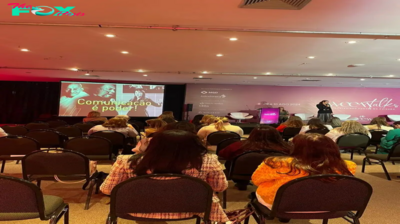Entertainment
Distinctive performances of Schoenberg and Zemlinsky in Vienna’s Musikverein – Seen and Heard Worldwide
 Austria Schoenberg and Zemlinsky: Dorothea Röschmann (soprano), Vienna Symphony Orchestra / Patrick Hahn (conductor). Musikverein, Vienna, 5.6.2024. (MB)
Austria Schoenberg and Zemlinsky: Dorothea Röschmann (soprano), Vienna Symphony Orchestra / Patrick Hahn (conductor). Musikverein, Vienna, 5.6.2024. (MB)
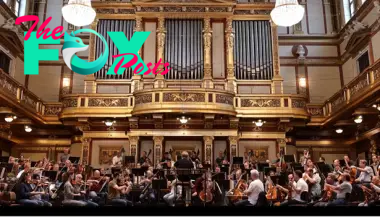
Schoenberg – Erwartung, Op.17
Zemlinsky – Die Seejungfrau
What’s Schoenberg’s single biggest work? It’s a foolish query, no less than as foolish as asking the identical of Mahler, of Webern, or of Boulez. Typically we ask ourselves foolish questions, although; I believe that Erwartung would come fairly near the highest of any mixture listing for Schoenbergians. Written over an awfully brief time frame – Schoenberg was typically, although not at all times, like that – the monodrama comes from his Wunderjahr of 1909. Nevertheless, it needed to wait till 1924 for its first efficiency, in Prague on 6 June, carried out by the composer’s nice buddy, advocate, and brother-in-law (I believe we will nonetheless depend him as such, although Mathilde Schönberg had died the earlier yr) Alexander von Zemlinsky. This Musikverein efficiency, by Dorothea Röschmann, the Vienna Symphony, and Patrick Hahn, should certainly subsequently have been the final of its first century-in-performance, coming because it did on 5 June 2024. Aptly sufficient for therefore prophetic but traditionally rooted a piece, its successor the next night would inaugurate a brand new performing century.
This, at any fee, made for an excellent finale that would additionally look ahead, certainly the equal of any efficiency I’ve heard and the superior of many, whether or not dwell or on file. In his one hundred and fiftieth yr, Schoenberg’s place as the only most necessary – not essentially ‘biggest’, no matter that will imply, although actually a severe contender for that too – composer of the 20 th century is assured. It at all times was: nonetheless, it has nonetheless not translated into broader acceptance from a frankly doltish public. (That his rejection is usually, even often, laced with antisemitism, unconscious as a lot as acutely aware, makes it worse; however allow us to depart that apart for now.)
First and much from least, it was fantastically sung by Röschmann: magnificence, music, and fantastic thing about singing all being concerned there. It was astonishingly correct too, and never solely within the vocal half, although one might have taken dictation from it had, one way or the other, one not been swept away by the expertise. Hahn’s knowledgeable balancing of the strains – at all times a difficult, in one other sense unsung, enterprise within the music of the Second Viennese College – was such that one nearly didn’t realise he was doing it. That was additionally, naturally, the accomplishment of the golden-toned VSO, right here furthermore sounding each bit as ‘Viennese’ as their Philharmonic cousins (to whom I’m certain they’re rightly fed up with being in contrast). Construction, furthermore, was as no less than clear as I can recall, Schoenberg’s scenic division of the work, the fourth and last scene far longer than the others, uncommonly obvious and dramatically significant, with out making the efficiency appear something however a convincing entire. Climaxes had been, nicely, as climactic as one might hope, after which some; but at all times one thing was shifting, conclusion or, as we would now say, ‘closure’, by no means on the horizon.
Music arose from drama, and vice versa. Schoenberg by no means factors in merely one path; nor did he right here. The whirlwind third scene particularly appeared however a stone’s throw, if that, from the later Schoenberg of, say, the almost-never-performed Op.22 4 Orchestral Songs, but there was at all times a lot of earlier writing too: as an example, the Op.8 Six Orchestral Songs and, certainly, Gurrelieder. As we entered the ultimate scene, Röschmann edged nearer at instances to Sprechgesang, but solely at instances. Later, the opera – for allow us to always remember it’s one – appeared to return near Wozzeck’s Marie, no less than within the voice, for the orchestral writing rightly sounded very totally different. The coolness of the strings following ‘Ich will das nicht … nein, ich will nicht …’ supplied aftershock that was horrible, even terrifying, certainly, initiating sure intimations, so it appeared, of Pierrot lunaire. There was nice tenderness too; how might one not sympathise with this protagonist? One really felt, furthermore, the transformation of the ‘Dämmerung’ to which she referred towards the top, in a musical breeze that testified to Schoenberg’s mastery of orchestration in addition to masterly orchestral enjoying. And the musical upward spiral with which the rating got here to a detailed, if not closure, was simply the factor: tantalisingly temporary, but saying all that may very well be stated or performed.
What, then, is Zemlinsky’s single biggest work? I’m not certain it’s fairly so foolish a query; the Lyric Symphony would most likely haven’t any severe rival in any survey, although it would nonetheless beg the query, ‘why are you asking?’ One potential reply is perhaps to assist perceive why different works by the composer have by no means fairly lived as much as its renown, although the operas once more appear to be experiencing a few of a revival. The symphonic poem – his just one – Die Seejungfrau can also be faring higher now, although its chequered genesis will most likely at all times depend in opposition to it. Zemlinsky withdrew the rating after solely three performances and suppressed it.
The unpublished rating was divided, the primary motion given to Zemlinsky’s buddy Marie Pappenheim, additionally Schoenberg’s librettist for Erwartung. Zemlinsky retained the second and third actions, taking them with him when leaving Europe for the US in 1938. Solely within the early Nineteen Eighties did students come to grasp that the three actions belonged collectively. Die Seejungfrau was lastly printed, receiving its first ‘fashionable’ efficiency, carried out by a kind of students, Peter Gülke, solely in 1984. It is probably not a masterpiece – it may, to be brutally sincere, be a bit of rePetitive at instances and would, unsurprisingly, have benefited from revision – however it’s nonetheless very nicely value listening to, particularly in a efficiency corresponding to this.
Zemlinsky’s methodology of motivic transformation got here very a lot to the fore, Hahn exhibiting himself as achieved a Zemlinskian as a Schoenbergian, constructing stress right here, particularly within the first motion, as expertly as he had in Erwartung. In some respects, the work got here to resemble a wordless, unvoiced opera. Its sepulchral (subaquatic) opening right here had one thing in widespread with Richard Strauss, with out ever decreasing itself to imitation or ‘likeness’; any similarities, all through the rating, had been simply that, no extra. Maybe the closest kinship – this has struck me earlier than – was with Mahler’s Das klagende Lied. Possibly there’s some affect there – its first efficiency got here in 1901 – but it surely was really the primary, lengthy unperformed a part of Mahler’s rating that extra typically got here to thoughts, so allow us to banish any considered derivation and have a good time commonality. Pacing and steadiness had been equally spectacular right here, and the way the orchestra shimmered, glowed, and glistened, as if the waters had been first awaiting after which celebrating the arrival of the mermaid and her subjectivity. Opposing and complementary materials had been deftly formed, once more with a eager ear for drama, within the second motion. The dual return to darkness and progress to one thing approaching transfiguration of the third each supplied an intriguing echo of Tannhäuser and constructed to a grand climax and additional shadows of its personal. For each Schoenberg and Zemlinsky, it was not a case of both/or.
Mark Berry
-
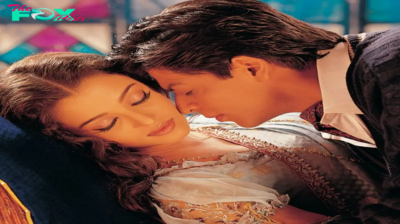
 Entertainment4h ago
Entertainment4h ago13 Most Romantic Movies Based on Novels
-
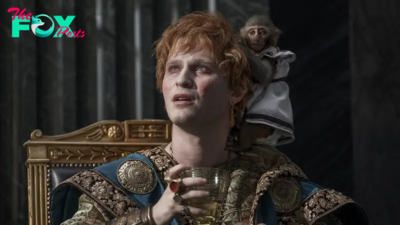
 Entertainment5h ago
Entertainment5h agoThe Monkey Is the Secret Hero of Gladiator II
-
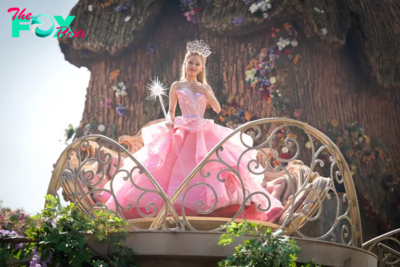
 Entertainment5h ago
Entertainment5h agoHow Wicked Connects to The Wizard of Oz
-
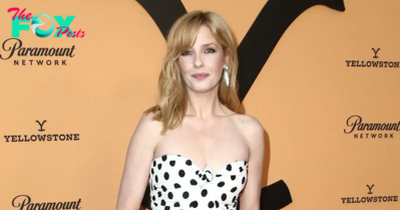
 Entertainment6h ago
Entertainment6h agoWhere Is Yellowstone’s Kelly Reilly From? Fans Shocked When She Reveals Real Accent
-
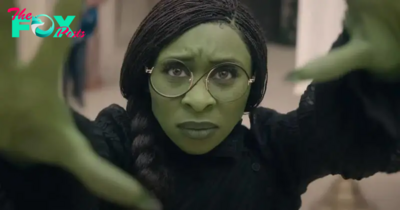
 Entertainment6h ago
Entertainment6h agoWhy Is the ‘Wicked’ Movie Split in 2 Parts? Director Jon M. Chu Explains Reasoning
-
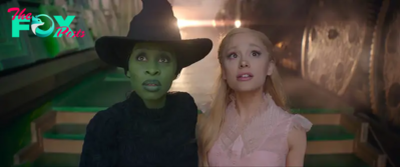
 Entertainment10h ago
Entertainment10h agoAll About That Major Surprise Cameo in the Wicked Movie
-
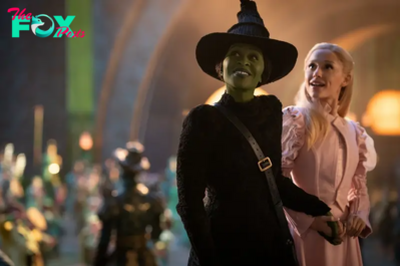
 Entertainment10h ago
Entertainment10h agoEverything to Know About the Grimmerie Spellbook in Wicked
-

 Entertainment11h ago
Entertainment11h agoNew Paltz Holiday Celebration Returns with a Carnival and Parade


